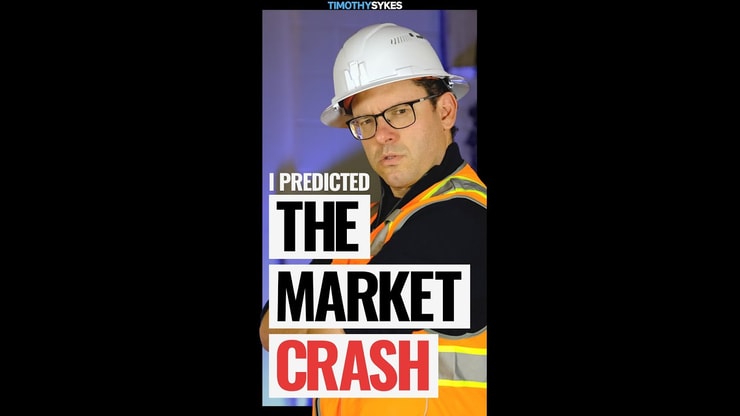Plays…plays…plays
Everyone wants them, but sometimes the best play is to sit on your hands.
And right now I’m starting to get worried about the market.
In fact, there are 3 main reasons why I believe we could see a sell-off very soon.
It could blind side a lot of traders and cause some massive losses.
But I got your back, I’ll show you what I’m looking at, and I plan to play it.
Table of Contents
Stocks Are Priced To Perfection Right Now
I have traded for over two decades and experienced enough bull and bear markets to tell when things are getting out of control.
In November 2021, I warned people that the market was going to crash…and I was dead on.

Take a look at AAPL, the stock has been gliding higher all year. But it’s now cracking after it released its latest earnings report.
Tesla, another favorite among investors, is trading well off its highs as well…

And while stocks like AMZN, and NVDA are still in a strong uptrend, they can’t afford any hiccups…
NVDA is trading at 233x multiple…and AMZN is trading at 340x.
Now, I’m not an investor, I trade price action, but I know enough that the fundamentals eventually catch up in the long-term.
And with earnings mostly out of the way…what else is going to keep stocks pushing higher?
The Overall Market Is Extremely Extended

The Nasdaq is up a whopping 40.1% this year…at some point it needs to take a breather right?
Stocks don’t go up in a straight line, let alone an entire basket like the Nasdaq.
Not only that, but sentiment has gotten SUPER bullish lately.

If the same analysts who predicted a recession and missed this entire rally are now saying the coast is clear…that worries me.
More Breaking News
- Credo Technology Stock Skyrockets After Impressive Fiscal Performance
- GTM Stock Falls Amid Latest Earnings Report and Market Reactions
- Exponent Sees Promising Growth with Dividend Increase and Upbeat Q4 Earnings
- GTM Stock Gains: Strategic Moves Pave Way for Future Growth
And it should worry you.
Historically, September and October Are Awful Months For Stocks
Traditionally, the worst month for stocks is September.
And while that doesn’t mean there has to be a sell-off in September, it can often lead to a self-fulfilling prophecy.

And let’s not forget the Bank Panic of 1907, The Stock Market Crash of 1929, and Black Monday 1987 all were in October.
While September is statistically the worst month for returns, it’s easy to see why October is the most feared.
How I Plan To Play It

First, I will be extra careful taking new positions, and will likely take less overnight trades.
Second, I will be hyper-focused on risk management, and cut losses quickly.
Third, I’m going to avoid “market stocks.”
I often say 3 out of 4 stocks follow the overall trend of the market.
However, there are always outliers.
Take for example VTGN yesterday.
Stubborn shorts really made a meal out of this one.

The stock re-opened at $2.50 after the halt and climbed as high as $60!
Many of my Challenge students caught this on the long side and crushed it.
And as long as there are plays like this, then I’m not too worried about a market sell-off.
Just be ready for a shift…because I believe it’s coming soon.
Taking The Next Step

My very best students are committed to learning and getting better each day. They know that results won’t occur instantly…but they trust the process.
Dozens of my students started off with just a few thousand bucks and turned into millions.
It’s possible.
But nothing is guaranteed.
Each day my team and I are offering live training classes. We talk about what’s happening in the current market and what we’re doing to take advantage of it.
If you want to join one of these live classes it’s simple.




Leave a reply